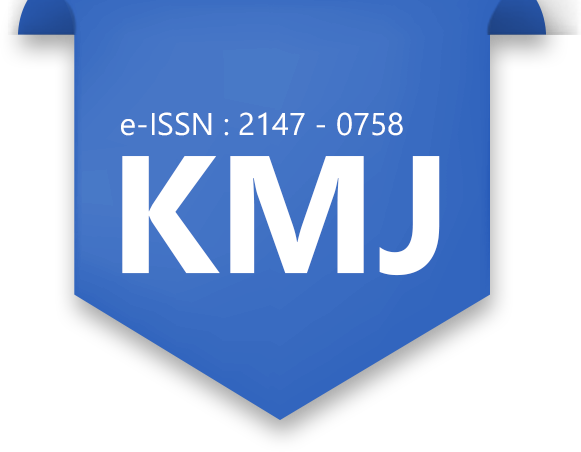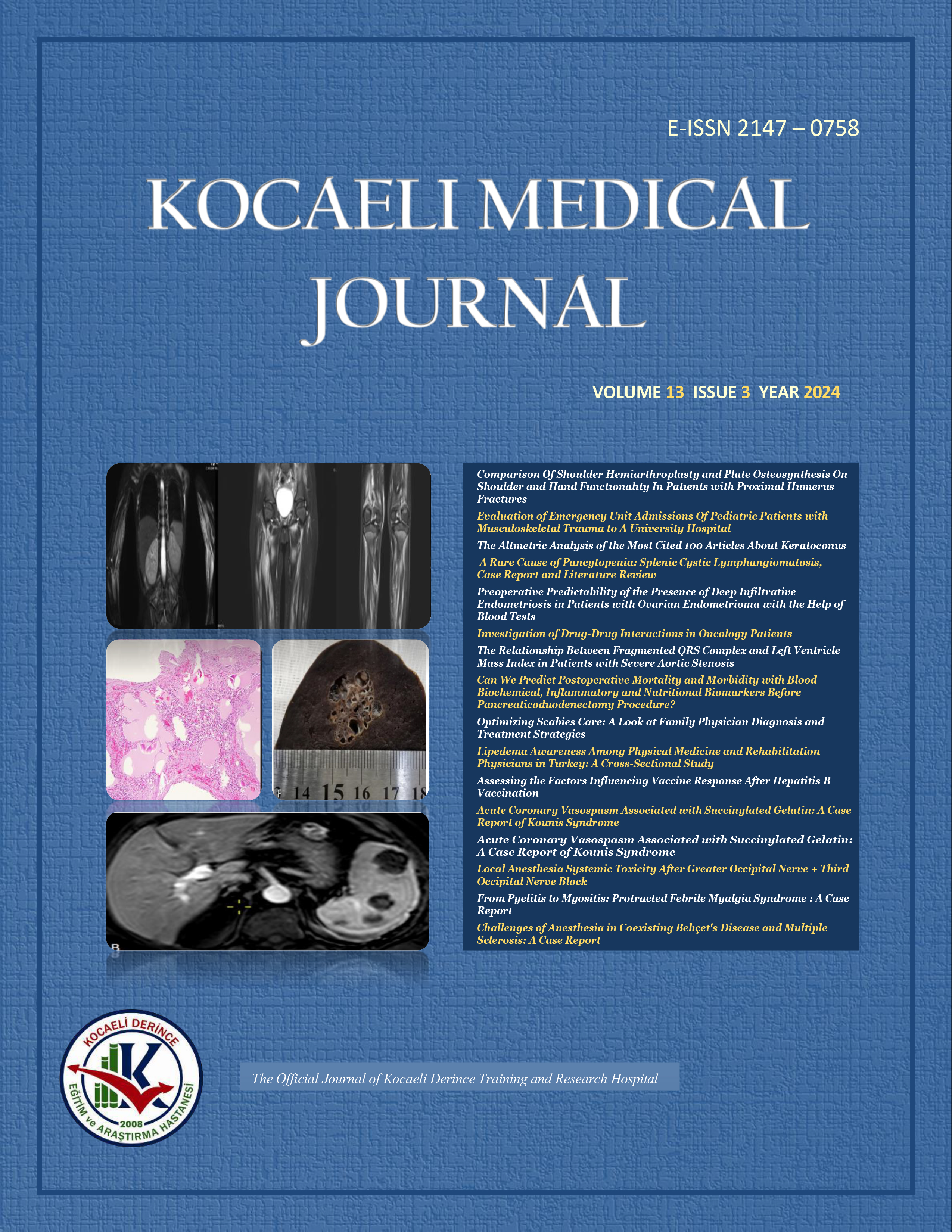
Evaluation of Professional Practice Competence of Nursing Students in the Context of Internships
Sultan Ayaz Alkaya1, Handan Terzi21Gazi University Faculty of Health Sciences, Public Health Nursing Department, Ankara, Turkey2Ufuk University School of Nursing Department of Public Health Nursing, Ankara Turkey
INTRODUCTION: This study was conducted to determine the evaluation of professional practice competence of nursing students in the context of internships.
METHODS: A descriptive-cross-sectional design was used. The universe was constituted of senior nursing students in a university (N=301). The sample was comprised of the students who agreed to participated in the study (n=273). The data were collected via a questionnaire and the Nightingale-Internship Program Evaluation Scale (N-IPES).
RESULTS: The average age was 22.16±0.97 and 88.3% were female. Of the students, 59.0% enthusiastically registered the nursing school, 92.3% desired to perform nursing after graduation, 43.6% preferred to work as staff nurse and 89.0% planned to progress in the profession. The N-IPES total mean score was 3.80±0.54. The average scores of subscales were for general features of the program 3.57±0.64, for personal development 3.92±0.63, for professional development 3.98±0.58, for guidance/counseling 3.69±0.76, for features of the practice area 3.34±0.80 and for communication-with-patients-and-relatives 4.08±0.69. The N-IPES total mean scores of the students who enthusiastically registered the nursing school and desired to perform nursing after graduation were significantly higher (p<.05); age, gender and the feature career plan variables did not affect the N-IPES total mean score significantly (p>.05).
DISCUSSION AND CONCLUSION: In conclusion, students evaluation of the internships was positive. The mean score of communication-with-patients-and-relatives subscale was the highest and features of the practice area mean score was the lowest. It is recommended that the internship program should be integrated into the nursing curriculum and the features of the practice area should be improved.
İntern Programı Kapsamında Hemşirelik Öğrencilerinin Mesleki Uygulama Yeterliliği
Sultan Ayaz Alkaya1, Handan Terzi21Gazi Üniversitesi Sağlık Bilimleri Fakültesi, Hemşirelik Bölümü, Halk Sağlığı Hemşireliği Ana Bilim Dalı, Ankara, Türkiye2Ufuk Üniversitesi Hemşirelik Yüksekokulu Halk Sağlığı Hemşireliği ABD, Ankara Türkiye
GİRİŞ ve AMAÇ: Bu çalışma intern programı kapsamında hemşirelik öğrencilerinin mesleki uygulama yeterliliğini belirlemek amacıyla yapılmıştır.
YÖNTEM ve GEREÇLER: Tanımlayıcı ve kesitsel tipte yapılan araştırmanın evrenini, bir üniversitenin hemşirelik bölümünde okuyan dördüncü sınıf öğrencileri oluşturmuştur (N=301). Araştırmaya katılmayı kabul eden öğrenciler örnekleme alınmıştır (n=273). Veriler kişisel bilgi formu ve Nightingale İntern Programı Değerlendirme Ölçeği (N-İPDÖ) kullanılarak toplanmıştır.
BULGULAR: Öğrencilerin yaş ortalaması 22.16±0.97, %88.3ü kadındı. Öğrencilerin %59.0unun hemşirelik bölümünü isteyerek tercih ettiği, %92.3ünün mezuniyet sonrası hemşirelik yapmayı istediği, %43.6sının klinik hemşiresi olarak çalışmak istediği ve %89.0unun hemşirelik mesleğinde ilerlemeyi planladıkları saptanmıştır. N-İPDÖ ortalama puanının 3.80±0.54 olduğu belirlenmiştir. Ölçek alt boyut ortalama puanları; programın genel özellikleri 3.57±0.64, kişisel gelişim 3.92±0.63, mesleki gelişim 3.98±0.58, rehberlik/danışmanlık 3.69±0.76, uygulama alanının özellikleri 3.34±0.80, hasta ve yakınları ile iletişim 4.08±0.69 olarak bulunmuştur. Bölümü isteyerek tercih eden, mezuniyet sonrası hemşirelik yapmak isteyen öğrencilerin N-İPDÖ ortalama puanının daha yüksek olduğu (p<.05); yaş, cinsiyet, gelecekteki kariyer planı gibi değişkenlerin N-İPDÖ ortalama puanını etkilemediği belirlenmiştir (p>.05).
TARTIŞMA ve SONUÇ: Hemşirelik öğrencilerinin intern programına ilişkin değerlendirmelerinin olumlu yönde olduğu belirlenmiştir. Öğrencilerin N-İPDÖ hasta ve yakınları ile iletişim alt boyutundan en yüksek, uygulama alanının özellikleri alt boyutundan en düşük puanı aldıkları saptanmıştır. İntern programının hemşirelik müfredatına eklenmesi ve uygulama alanının özelliklerinin iyileştirilmesine yönelik düzenlemeler yapılması önerilmektedir.
Manuscript Language: Turkish












